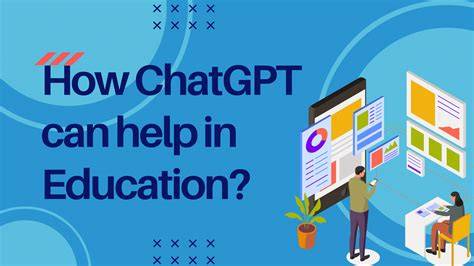Peer Feedback with ChatGPT: A Case Study on the Customization of Feedback in Higher Education
Main Article Content
Abstract
Despite the pedagogical benefits of peer feedback, challenges remain in consolidating diverse comments and providing customized feedback to each student or group. Generative AI (GenAI), such as ChatGPT, offers a promising solution to these limitations by leveraging its LLM capabilities to process, restructure, and consolidate the peer feedback. This study examined the effectiveness and usability of AI-supported customized feedback derived from peer evaluation data. 30 pre-service teachers at a South Korean university developed technology-integrated teaching-learning scenarios and exchanged peer feedback using detailed rubrics. ChatGPT was employed to process and restructure the feedback into more coherent and tailored reports. Data were collected through surveys and interviews, which revealed that learners perceived the AI-generated feedback as effective, usable, and supportive of their revision processes. The findings highlight the potential of GenAI within the framework of AI-Mediated Assessment, serving as a mediator that restructures and customizes peer feedback into a more effective form of personalized feedback for learners.
Downloads
Article Details
Issue
Section

This work is licensed under a Creative Commons Attribution-NonCommercial-NoDerivatives 4.0 International License.
References
Alali, R., Wardat, Y., 2024. Generative AI in education: Best practices for successful implementation. Int. J. Religion 5(9), 1016–1025. https://doi.org/10.61707/pkwb8402
Baidoo-Anu, D., Owusu Ansah, L., 2023. Education in the era of generative artificial intelligence (AI): Understanding the potential benefits of ChatGPT in promoting teaching and learning. J. AI 7(1), 52–62. https://doi.org/10.61969/jai.1337500
Brieven, G., Leduc, L., Donnet, B., 2023. How students manage peer feedback through a collaborative activity in a CS1 course. In: 9th International Conference on Higher Education Advances (HEAd’23). Universitat Polytecnica de Valencia, Valence, Spain.
He, W., Gao, Y., 2023. Explicating peer feedback quality and its impact on feedback implementation in EFL writing. Front. Psychol. 14, 1177094. https://doi.org/10.3389/fpsyg.2023.1177094
Henderson, M., Ryan, T., Phillips, M., 2019. The challenges of feedback in higher education. Assess. Eval. High. Educ. 44(8), 1237–1252. https://doi.org/10.1080/02602938.2019.1599815
Karadağ, Y., Yalçın, S., 2023. The impact of peer feedback on collaborative problem-solving skills in the online environment. Int. J. Assess. Tools Educ. 10(3), 563–571. https://doi.org/10.21449/ijate.1290901
Kusumayanthi, S., Lestari, I., 2022. The effect of peer feedbacks on students' speech. Engl. J. Literacy UTama 6(2), 603–611. https://doi.org/10.33197/ejlutama.vol7.iss1.2021.2655.4585
Lee, G.Y., Huh, S.Y., 2024. Exploring the effects of generative AI-based personalized feedback for enhancing pre-service teachers' teaching competencies. J. Yeolin Educ. 32(2), 265–287. https://doi.org/10.18230/tjye.2024.32.2.265
Lee, S., Lee, J., Jang, H., 2015. The effects of education using peer feedback on learners’ self-efficacy, critical thinking disposition, and academic achievement. Humanit. Soc. Sci. 21 12(6), 3233–3247.
Lerchenfeldt, S., Kamel-ElSayed, S., Patino, G., Loftus, S., Thomas, D.M., 2023. A qualitative analysis on the effectiveness of peer feedback in team-based learning. Med. Sci. Educ. 33(4), 893–902. https://doi.org/10.1007/s40670-023-01813-z
Michel-Villarreal, R., Vilalta-Perdomo, E., Salinas-Navarro, D.E., Thierry-Aguilera, R., Gerardou, F.S., 2023. Challenges and opportunities of generative AI for higher education as explained by ChatGPT. Educ. Sci. 13(9), 856. https://doi.org/10.3390/educsci13090856
OECD, 2022. Artificial intelligence and the future of skills project brief. OECD Publishing.
Patel, A., Sattler, J., 2023. Creatively malicious prompt engineering. WithSecure Intelligence, Helsinki, Finland.
Sajadi, S., Huerta, M., Ryan, O., Drinkwater, K., 2024. Harnessing generative AI to enhance feedback quality in peer evaluations within project-based learning contexts. Int. J. Eng. Educ. 40(5), 998–1012.
Shim, E., 2023. The effects of peer feedback activities in problem-based learning. J. Educ. Technol. 33(2), 269–294.
Su, J., Yang, W., 2023. Unlocking the power of ChatGPT: A framework for applying generative AI in education. ECNU Rev. Educ. 6(3), 355–366. https://doi.org/10.1177/20965311231199769
Sweller, J., 2011. Cognitive load theory. In: Mestre, J.P., Ross, B.H. (Eds.), The Psychology of Learning and Motivation. Academic Press, London, Vol. 55, pp. 37–76. https://doi.org/10.1016/B978-0-12-387691-1.00002-8
UNESCO, 2022. Recommendation on the ethics of artificial intelligence. UNESCO, Paris.
Wu, Y., Wang, L., 2024. Ethical and regulatory challenges of generative AI in education. J. Comput. Assist. Learn. 40(2), 215–229. https://doi.org/10.1111/jcal.12852

